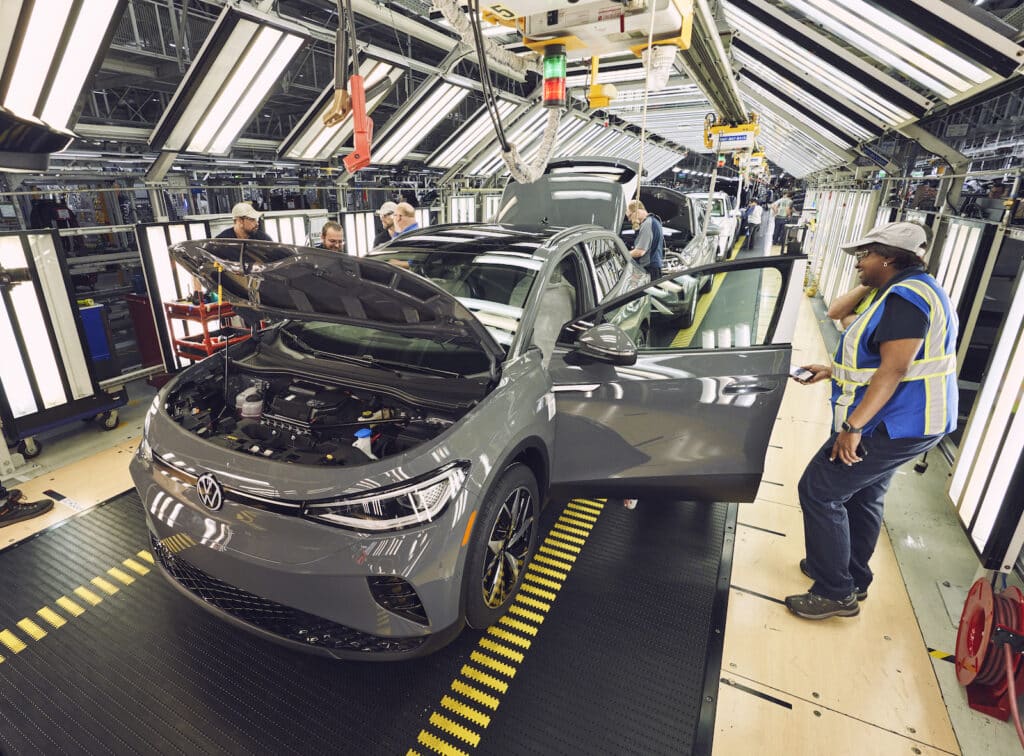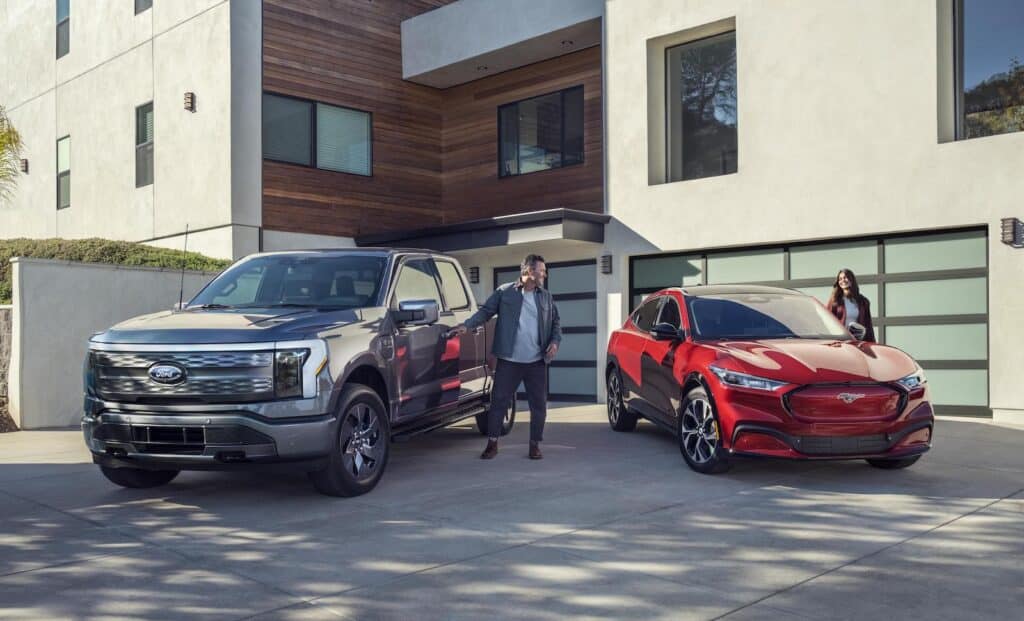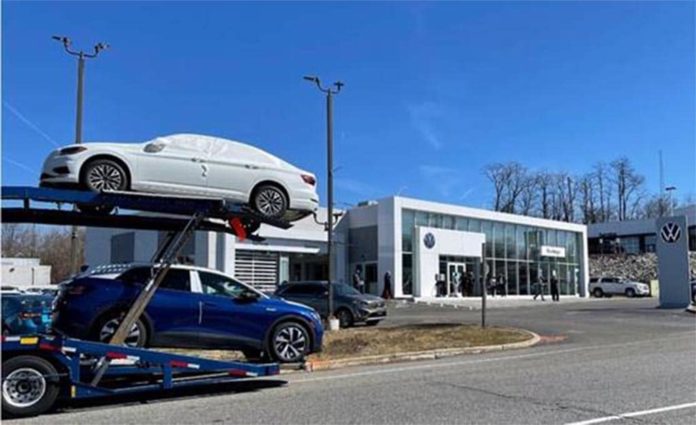Sales of electric vehicles are pushing up to about 7% of total vehicle sales for the first six months of 2023, rising from about 6% last year.
But as new vehicle inventory levels recover from supply chain constrictions across the board, EVs are now sitting on dealer lots in greater numbers than they have since before the pandemic — driving average transaction prices down.
According to a report by Cox Automotive, the average transaction price, or ATP, on all new vehicles this spring has been below the sticker price for several months. ATP for new vehicles is about $48,000. However, ATP for EVs is down about $10,000 over last year, and about half of that drop happened this spring.
The average price paid for a new electric vehicle this spring decreased by $4,464, or 7.5%, to $55,089, according to Cox. That’s down $10,096 compared to one year ago. New EV pricing peaked in June 2022 and has fallen significantly so far in 2023.
“April’s downward movement of EV average transaction prices reflects EV automakers, particularly Ford and Tesla, seeking a balance between pricing and profitability,” said Michelle Krebs, executive analyst at Cox Automotive. “With average EV prices trending lower, we are seeing EV sales increase. For example, EV sales estimates in April were up by 26% year over year.”
EVs begin to pile up at dealers

According to Cox, EV sales should top 1 million units this year, for the first time ever. More than 250,000 were sold in the first quarter of the year. That’s about 6.5% of the market in the first six months, and sales pace is rising. In the Cox report, 51% of consumers are considering a new or used EV, and that’s up from 38% just last year. Across the market, 33 new EV models are launching this year, and about 50 are planned for next year.
Right now, the supply of EVs for sale has ballooned by 350% to more than 92,000 vehicles awaiting sale. That represents a 92-day supply in the market, which is more than twice the industry average inventory turn rate. Gasoline-fueled vehicles are currently sitting at about 50-55 days of supply, still less than the historical average 70-day inventory turn.
The situation is worse for high-price luxury EVs such as those from Genesis, GMC, and Audi, though all import brands not eligible for new tax credits are feeling the pinch. More affordable EVs and hybrids are selling much faster, with a 44-day supply of hybrids on dealer lots right now.
The other effect of a rapidly growing new EV market is a latent emerging market in pre-owned EVs. The critical mass of new EVs and the aging second-generation EVs from 3 to 6 years of age will drive used EV prices down to more affordable levels. In the pre-pandemic market, used EVs sold cheaply on concerns about battery degradation and imminent replacement. That’s less of an issue with newer models, so used EVs will increasingly become a staple of used car sales.

A maturing market
According to Cox, EV prices should reach parity with internal combustion engine vehicles sometime in 2025. That indicates a maturing market and far less consumer frenzy as choices proliferate and general availability increases.
In the past, EVs went from oddities that attracted technology enthusiasts and early adopters, and then broke through the customer reluctance barriers of range anxiety and price sensitivity. For a while, buyers competed to get the latest EVs, resulting in a whirlwind market of flippers and high markups.
Now it seems the production capacity is catching up to demand and a more normal market will ensue, with automakers competing for buyers along traditional lines of value for the dollar in terms of range, performance, and luxury features at affordable prices.
According to a survey of dealers referenced by Automotive News, about 80% are now required to prepare to sell EVs. Roughly half of dealers surveyed reported being ready to make the change, with 40% unsure and fewer than 10% unprepared.
Further, Automotive News reported that fewer than 33% of dealers surveyed responded that they believe EVs will eventually replace internal combustion vehicles. Half of dealers stated that they think EVs still have to prove themselves on the showroom floor.

